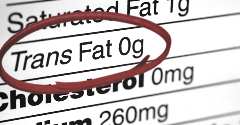Social media-savvy Gen Z consumers drive brand licensing uptake
12 Apr 2022Food manufacturers are embracing brand licensing as a way to connect with Gen Z and Millennial consumers. “Generating ‘buzz-worthy’ PR and billions of brand impressions has never been more crucial,” says one expert.
In January this year, Hostess Brands signed licensing agreement with dairy giant Danone to create Twinkies-flavoured International Delight Coffee Creamers. Other big name companies striking licensing deals include Mondelez and Oreo, Cinnabon with a host of flavour-profile mash-ups – including with Pillsbury and Keurig K-Cups coffee – and cereal brands including General Mills with Betty Crocker.

The Covid-19 pandemic has been a significant driver of brand licensing uptake in recent years as consumers sought familiarity. However, there are other longer-term drivers. These include a desire to borrow health and sustainability 'halos' of other virtuous products in a bid to attract increasingly conscious consumers.
For example, American chocolate giant Hershey partnered New-Zealand dairy company A2 in 2021; a licensing deal resulting in a co-branded chocolate milk using A2's more 'tummy-friendly' A1 beta casein protein-free milk.
Global sales of natural and organic products – including food and beverage, supplements, personal care and household products – are forecast to surpass $300 billion by 2023 and $400 billion by 2030, said Lotman, citing Licensing International's forecasts from March 2022.
All major brands are also now fully focused on environmental, social and corporate governance (ESG), said Steven Ekstract, managing director at New York-headquartered licensing consultancy, Global Licensing Advisors. "Today's most important cohort of consumers, Millennials and Gen Z, have come to expect this from brands."
These deals also offer the opportunity for lesser known "better-for-you" brands to raise their own profile on the back of a big-name brand, said Jeff Lotman, CEO of worldwide brands licensing agency Global Icons. "A great example for this category that has seen growth through licensing is in the protein powder category."
Other benefits to food licensing deals include the opportunity to create additional product lines by "borrowing brand equity," building a "competitive advantage" through exclusive licensing opportunities, opening new channels of distribution, and increasing shelf space with a "broader and stronger" product mix, said Lotman.
These deals can also promote stronger relationships with existing customers while gaining new ones, he said.
Brand recognition the 'number one benefit'
Asked why – given the benefits up for grabs – food companies have not previously taken advantage of deeper and longer-term licensing agreements, Ekstract said: "The profit margins on FMCG [fast-moving consumer goods] are very slim, so licensors cannot command the usual percentage they expect in royalties."
Lotman also marked a "lack of understanding of the benefits of licensing" in the past, with food companies worried they could lose control of their brand.
"However, brands have woken to the idea of licensing as a major marketing benefit. Consumers seeing the brand on food and beverages reinforces their love for the core brand," said Ekstract
He stressed: "Brand recognition is by far the number one benefit."
The need to reach Gen Z audiences who meet brands via social media platforms is another driver for food licensing in recent times, said Lotman, adding that generating "buzz-worthy" PR and billions of brand impressions has never been more crucial.
Meanwhile, the increasing number of big licensing deals making headlines over the last few years could also in-turn drive more licensing.
"Licensing is now becoming more visible, and big CPG companies are seeking to leverage their brands for profitability, meeting consumer needs, and to use licensing as a marketing tool," said Lotman. The examples set by other food companies has highlighted that licensing can provide low-risk entry to new markets.
Food licensing will continue to soar
Both experts predicted that, now food brand licensing deals have a seat at the table, their use will continue to soar.
Lotman predicted future deals will see the continued rise of restaurant brands and branded flavour-profile team-ups with confection brands such as Mars and Hershey, and an uptick in organic and plant-based brands extending into adjacent categories to "fill the white spaces in the market".
He also forecast the growth of protein powders and pre/ post workout drinks seeking iconic flavour profiles "to communicate with the consumer on the shelf [and] allow consumers to feel like they are not missing out on their favourite treat".
"We now live in a fully branded society where consumers seek out well known brands so we will continue to see greater growth in licensing in the food and beverage sector," said Ekstract.
Related news

Chinese food brand wants to give customers ‘the full experience’
16 Dec 2022
Food brand Xiao Chi Jie is revamping Chinese cuisine for the modern American consumer. The Washington-based company sells regional Chinese specialties like soup dumplings, noodle kits, and barbeque skewers direct-to-consumer in the US.
Read more
Regulations spur healthy snacking in Europe
15 Dec 2022
Healthy snack demand is on an upward trajectory in Europe, fuelled by products attaching health halos to their products, according to latest figures by Euromonitor – but regulations may be the real driver.
Read more
Could the EU-Mercosur trade deal be revived?
14 Dec 2022
The re-election of Luiz Inácio da Silva, or Lula, as president of Brazil has prompted speculation that the free-trade agreement between the EU and South American Mercosur bloc could be revived – but the European farming sector has concerns.
Read more
Could menopause-supporting products be the next big opportunity?
13 Dec 2022
As supplement brands launch products to relieve the symptoms of menopausal women such as nutraceutical gummies, the unmet needs of this group is attracting government attention in the UK.
Read more
Plant-based fish and seafood launches around the world
12 Dec 2022
From pea protein-based prawns to microalgae-based tuna alternatives, plant-based alternatives to fish and seafood are on the rise around the world.
Read more
Editors’ choice: Our roundup of the most innovative sweets, snacks and bakery products
9 Dec 2022
The sweets, snacks, and bakery categories are an exciting area, full of fresh and innovative products which are constantly adding meaningful value to the sector.
Read more
Functional food in Japan centres on health and proving claims
8 Dec 2022
The latest Japanese functional food and drink trends put health and product efficacy firmly on the production agenda for new releases.
Read more
Swedish food agency: One in 10 coffee brands contain excess acrylamide
7 Dec 2022
New findings from the Swedish Food Agency have revealed three of 29 coffee products sampled contained acrylamide above limits, reinforcing the link between levels and degree of roasting.
Read more
‘Super nut’? Indonesia’s ‘best kept secret’ wins EU novel food approval
6 Dec 2022
A previously obscure, nutrient-rich Indonesian nut is set to hit European shelves after winning EU novel foods approval that could also help protect under-threat kenari forests on the archipelago.
Read more
Philippines to restrict trans fats in processed foods
5 Dec 2022
Use of artificial trans fats in pre-packed processed foods will be restricted in the Philippines as the country looks to eliminate its consumption from other sources too.
Read more